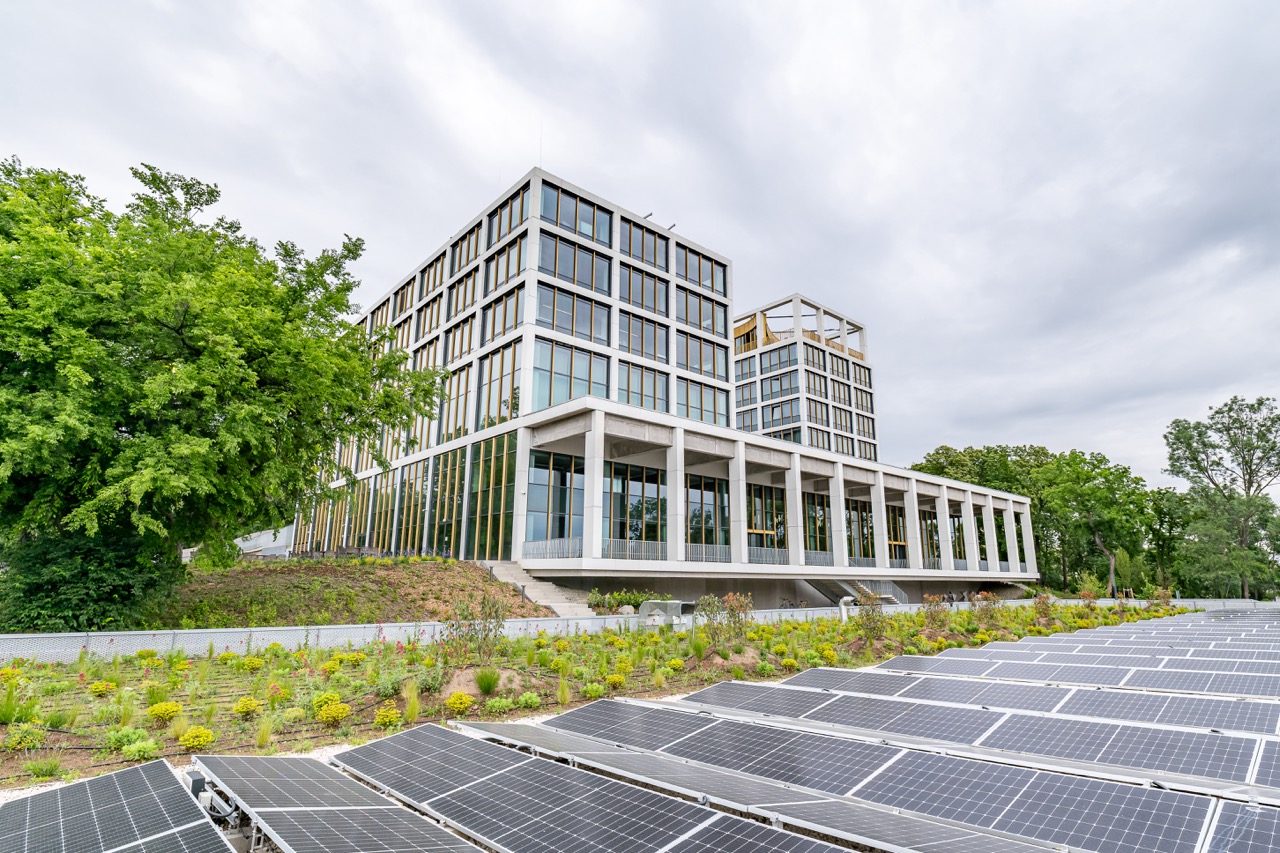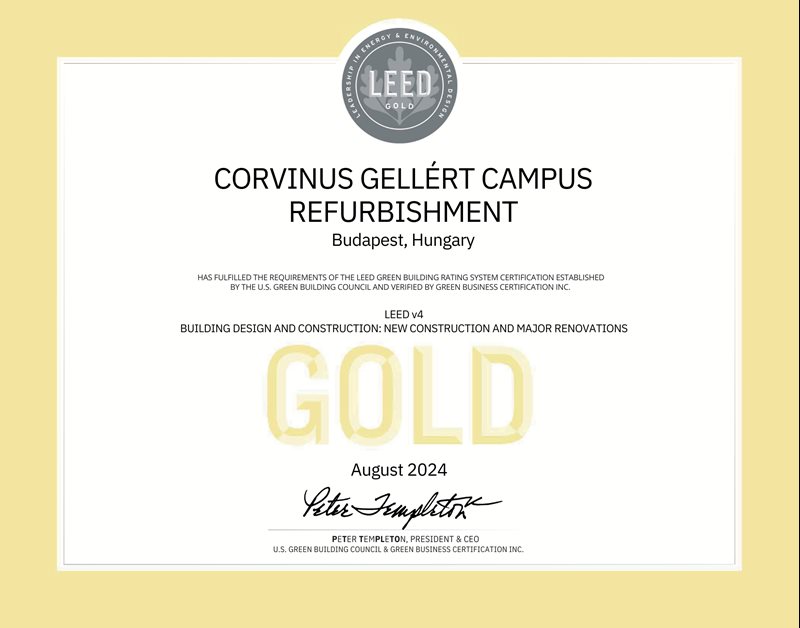Corvinus wins prestigious international sustainability certification

In February this year, Corvinus University of Budapest inaugurated its renovated teaching site, the Gellért Campus. The complex, which has a useful area of around 14,000 square metres, has been modernised with sustainability in mind. Formerly home to the College of Public Administration, the site includes teaching-learning-community spaces, a dormitory, a sports centre, and a one-hectare park.
“Our decision to renovate rather than demolish the old building and erect a new one was the most impactful in terms of sustainability. This significantly reduced the environmental impact in terms of waste, energy, and building materials. This is why we set the goal of achieving LEED Gold certification from the very beginning of the project. The requirements to achieve this level had to be met throughout the entire investment process, from design to demolition waste management, from construction to operation. We want the environmental approach taken in the project to be reflected in university education and to shape the university community’s relationship with the renewed campus. We hope that this will be as successful as obtaining the LEED certification”
– said Tibor Misovicz, Secretary of the Board of Trustees of the Maecenas Universitatis Corvini Foundation, which managed the project on behalf of the Foundation.
“We are delighted to have been involved as sustainability consultants in the Gellért Campus project. The sustainability framework for the project was provided by LEED requirements, the world’s most widely used green building rating system, which assesses sustainability based on a comprehensive set of criteria. The second highest level of certification available is Gold; there are only ten new buildings in Hungary with at least LEED Gold certification of fully fitted interior, and Gellért Campus is the only educational institution amongst them. The certification is carried out by an independent American organisation and is generally accepted in professional circles as a high level certification. To obtain certification, strict requirements must be met and compliance must be demonstrated to the certifying body with detailed supporting documentation”
– emphasised Barnabás Herényi, LEED certification consultant for the Gellért campus project and sustainability team leader of Óbuda Group.
On the campus, the building envelope design and the use of other passive design tools will significantly reduce the heating and cooling energy demand of the building, and the energy required will be provided by the most sustainable technology possible. The site is equipped with a solar power plant with almost 400 solar panels, providing around 15% of the building’s energy needs, and 86 ground-source heat pumps and air-to-water heat pumps for cooling and heating. The building is equipped with intelligent energy management with automatic shading, motion-sensing lighting, maximum use of natural light, and LED light sources where necessary. The campus also paid attention to water use: thousands of cubic metres of drinking water are saved every year through low-irrigation plant selection and water-efficient irrigation system design in the garden, and water-saving taps and toilets inside the building. Of the more than 4,000 tons of waste generated during the works, 100% of the demolition waste and 82% of the construction waste were collected separately.
During the renovation, the sustainability of the transport infrastructure was also taken into account, with incentives to replace the car use, as the area has excellent public transport. The campus can store 170 bicycles, and the parking area is only for around two dozen cars, built under a special permit to reduce the demand of the general legal requirement. The parking area is equipped with electric charging points. The park has a valuable biodiverse, low water demand, multilevel planting area, and several green roofs on the building.
